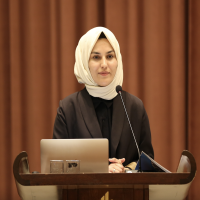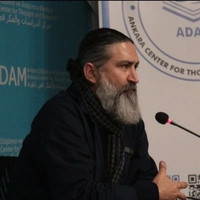Research Articles
Issue Editorial Board




 0000-0001-9328-0205
0000-0001-9328-0205



 0000-0003-3981-4688
0000-0003-3981-4688




 0000-0002-5338-3266
0000-0002-5338-3266

 0000-0002-0503-1135
0000-0002-0503-1135



Aim & Scope
The primary goal of the Journal of Religion and Human is to publish research articles in the fields of religion, philosophy, social sciences and humanities. In addition, compilations, article translations, symposiums and book launches are also included in order to introduce and evaluate studies in these fields and to share them with researchers and the public.
The main goal of the journal is to contribute to the world of science and knowledge; to the cultural heritage and progress of humanity by publishing qualified studies in the fields of religion, philosophy, social and humanities, especially in the fields of Basic Islamic Sciences, Philosophy and Religious Sciences, Islamic History and Arts. It is also aimed to address controversial issues in the fields of religion, philosophy, social and humanities and present them to the benefit of researchers and the public with objective evaluations.
Author Guidelines
WRITING RULES and APPLICATION CONDITIONS
Application Requirements:
1. The studies prepared jointly by graduate students with their advisors or a researcher with a doctoral degree are accepted for review. (This article will be valid as of 2026.)
2. An author whose article has been published in the journal can send his/her next article to the third issue after the journal publishes two issues. (This article will be valid as of 2026.)
3. In-house articles in the journal are limited to 20%. (This article will be valid as of 2026.)
Writin Rules:
4. Page settings of the text should be 2.5 cm at the top, 2.5 cm to the left, right, and bottom; 6 nk between paragraphs and 1.5 cm for line spacing.
5. The Turkish title of the article should be on the first page in the middle, at the top, bold and in a size 11 font. Just below it, there should be a bold, center-aligned English title.
6. Headings and paragraph headings in the article should begin with a 1.25 cm indent.
7. The article's headings and subheadings should be written in bold, with the initial letter of each word capitalized.
8. The entire text should be justified, with the exception of the article title.
9. In the bibliography, the second line should begin 1.25 cm in from the first line.
10. Footnotes should be justified, in Cambria font, with single line spacing, and 8 points.
11. Studies should be uploaded to the journal's website at the following address https://dergipark.org.tr/tr/pub/dinveinsan
12. At the beginning of the study, an Abstract in Turkish and a foreign language consisting of at least 200 and at most 300 words and at least 5 and at most 7 Keywords should be included. The first of the keywords should be the name of the department.
13. Every scientific article must have a “References”, sources must be written in the Latin alphabet, care must be taken to ensure their presentation, accuracy and accessibility.
14. In articles written in languages other than Latin, the title, abstract, keywords and references written in Latin letters must be included.
15. Tables and Figures: Tables must have numbers and titles. Texts within tables must be written with single line spacing. Vertical lines must not be used in table drawing. Horizontal lines must only be used to separate subheadings within the table. The table number must be written vertically, justified to the top and left; the table name must be written in italics, with the first letter of each word capitalized. Tables must be in the places they are supposed to be in the text. Figure numbers and names must be written centered just below the figure. The figure number must be written in italics, must end with a period, and the figure name must be written vertically, with only the first letter capitalized.
16. The following should be taken into consideration in book reviews:
16.1. Book reviews should be by a single author.
16.2. The title should include the book's full title and page count. There should be no English title.
16.3. Book reviews should not include an abstract.
16.4. The Book Review Article Template should be used.
Additional Information:
• The relevant editor may make any spelling corrections he/she deems necessary. Again, it may correct the abstract written in a foreign language if deemed necessary.
• As detailed under the heading "Ethical Rules", the following issues regarding the journal's publication ethics must be adhered to:
• Every article sent to our journal is sent to two independent referees other than the editorial board after the preliminary check of the technical publication board. Upon the positive opinion of the referees, the article is evaluated again by the publication board and after the necessary copyright and ethical documents are obtained, the article is moved to the editing/layout stage for publication. After the necessary edits, it is placed in the publication queue.
• Every article sent to our journal is scanned and evaluated in a plagiarism detection program. Articles that fall below the minimum requirements are not evaluated. Intihal.net, iThenticate and Turnitin programs are used for plagiarism detection. Through these systems, it is confirmed that the articles have not been published anywhere before or do not contain any plagiarism. However, all responsibilities such as plagiarism belong to the author.
• The opinions expressed in the articles published in the journal bind their authors. All legal responsibilities of the articles belong to the authors.
• No royalties are paid for published articles. Published articles cannot be withdrawn.
• It is recommended that scientific studies to be submitted should not exceed 20 pages. More than one article by the same author cannot be published in one issue.
• The studies must reach the journal electronically by April 15 at the latest for the June issue and October 15 at the latest for the December issue.
• The order of the studies should be arranged as follows:
TURKISH TITLE
ENGLISH TITLE
Turkish Abstract
Keywords
Abstract
Keywords
Introduction
Chapters
Conclusion
Bibliography
• Footnotes in articles should be given in the text (APA-7) and prepared in accordance with the requirements for references in academic articles (see, Reference style).
• The American Psychological Association (APA-7) style had to used in the citation system and bibliography of the articles sent to the journal. For detailed information, the page https://apastyle.apa.org/ should be examined.
Ethical Principles and Publication Policy
The Rules of Research and Publication Ethics of the Journal of Religion and Humanity are as follows:
1. Each article sent to our journal is sent to two independent referees, apart from the editorial board, after the preliminary control of the technical editorial board. In this process, double-blind arbitration is applied. Upon the positive opinion of the referees, the article is re-evaluated by the editorial board and after the necessary copyright and ethical documents are obtained, the article is moved to the editing/layout stage for publication. After the necessary edits, it is placed in the publication queue. Book Review articles are sent to a referee after the field editor checks and if deemed appropriate, action is taken according to his/her decision.
2. Every article sent to our journal is scanned and evaluated in a plagiarism detection program. Or a plagiarism screening report may be requested from the authors. Articles below the minimum requirements will not be evaluated. Programs such as iThenticate, Turnitin, https://intihal.net/ are used to detect plagiarism. Through these systems, it is confirmed that the articles have not been published anywhere before or do not contain any plagiarism. However, authors are responsible for plagiarism and content-related issues.
3. Care should be taken to protect personal data in articles submitted to our journal. In this regard, the journal management is obliged to ensure the protection of personal data regarding the images/subjects in the articles. Personal data used in the content of the article will not be published without the explicit consent of individuals. In this context, the author, editorial board, editorial board and referees are responsible for protecting the individual data in question.
4. Issues such as freedom of thought and property rights of the articles submitted to our journal are respected. The journal management is obliged to protect the intellectual property rights of all articles it deems suitable for publication and to defend the rights of the journal and authors in case of possible violations. In addition, the publishing and editorial board of the journal is obliged to take the necessary precautions to ensure that the contents of the articles do not violate the intellectual property rights of other publications.
5. Respect for fundamental human rights and animal rights should be essential in articles submitted for publication. In this context, ethics committee approval must be obtained for the subjects to be used in the articles. In this context, the journal management is obliged to ensure the protection of human and animal rights in the articles. In cases where there is no ethics committee approval for the subjects used in the articles or legal permissions for the experimental research, it is obliged to reject the article in question.
6. The rules to be taken into consideration regarding publication ethics in the articles sent to our journal are as given under the heading "Actions contrary to scientific research and publication ethics" in Article 8 of the YÖK Scientific Research and Publication Ethics Directive. Authors should seriously avoid the matters detailed below:
a) Plagiarism: Presenting the ideas, methods, data, applications, writings, figures or works of others as one's own work, in whole or in part, without citing their owners in accordance with scientific rules.
b) Forgery: Producing data that is not based on research, editing or changing the presented or published work based on unreal data, reporting or publishing them, pretending that a research has not been conducted.
c) Distortion: To falsify research records and data obtained, to present methods, devices and materials that were not used in the research as if they were used, to not evaluate data that are not suitable for the research hypothesis, to manipulate data and/or results to fit the relevant theory or assumptions, to falsify or shape the research results in line with the interests of the people and organizations receiving support.
d) Re-publication: Presenting more than one work containing the same results of a research as separate works in associate professor exam evaluations and academic promotions.
d) Slicing: Presenting the results of a research as separate works in associate professorship exam evaluations and academic promotions by dividing them into parts in an inappropriate manner, in a way that disrupts the integrity of the research, and by publishing multiple publications without citing each other.
e) Unfair authorship: Including people who do not have an active contribution among the authors, not including people who have an active contribution among the authors, changing the author order in an unjustified and inappropriate way, removing the names of those who have an active contribution from the work during publication or in subsequent editions, using their influence to include their names among the authors even though they do not have an active contribution.
f) Other types of ethical violations: Not clearly stating the supporting persons, institutions or organizations and their contributions to the research in the publications of supported research. Not complying with ethical rules in research conducted on humans and animals, not respecting patient rights in publications, sharing the information contained in a work that he is assigned to review as a referee with others before it is published, using the resources, places, facilities and devices provided or allocated for scientific research for purposes other than their intended purpose, making completely unfounded, unfounded and intentional accusations of ethical violations.
7. For manuscripts sent to our journal, international standards published by COPE (Committee on Publication Ethics) for Editors and Authors will be taken into account.
Author:
a. Authors own the copyright of their work published in the journal, and articles published in the journal are published under the CC BY-NC 4.0 open access license.
b. Articles sent to the journal must not have been previously published or sent to another journal for publication. In other words, the studies sent for publication must be original. Studies that have been previously presented at national or international congresses or symposiums and whose abstracts have been published can be sent by stating these qualifications.
c. Studies sent to our journal must not be contrary to scientific research and publication ethics. The rules specified in the YÖK Scientific Research and Publication Ethics Directive must be strictly adhered to.
d. The Editorial Board of the Journal of Religion and Humanity may request additional documents from the author/s regarding the ethical status of an article while the preliminary control, evaluation and editing processes of an article are ongoing.
e. The Editorial Board of the Journal of Religion and Humanity does not accept changes in author responsibilities (adding/removing authors, changing the order) in a publication whose evaluation process has started.
f. The Editorial Board of the Journal of Religion and Humanity assumes that the authors of the articles sent for publication have accepted to comply with these conditions.
Publisher-Editor:
a. The Editorial Board of the Journal of Religion and Humanity develops arguments that will mediate the increase of the quality standards of the journal.
b. The Editorial Board of the Journal of Religion and Humanity ensures that author and referee relations are safe, ethical and healthy.
c. The Editorial Board of the Journal of Religion and Humanity strives to meet the needs of readers and authors.
d. The Editorial Board of the Journal of Religion and Humanity defends academic thought diversity and scientific freedom of thought. In addition, it strives to continue the operation of the journal by taking into account intellectual property rights and ethical standards.
e. The Journal of Religion and Humanity continues all publication processes transparently in accordance with its publication policy. It observes transparency in matters requiring correction, change and explanation for any reason, in accordance with its publication policy.
Referee:
a. According to the publication policy of the Journal of Religion and Human, our journal employs a "Double-Blind Refereeing and Evaluation Process". The identity of the author is not disclosed to the referees, and the identity of the referee is not disclosed to the authors. The editorial board is authorized in the event of any negative situations that may occur during this process. Except for legal processes, the journal management prioritizes referee confidentiality.
b. Every article sent to the Journal of Religion and Human is sent to two independent referees other than the editorial board after the preliminary check of the technical publication board. If both referees give a positive opinion, the article is published. If both referees give a negative opinion, the article is rejected. If one of the referees gives a negative opinion and the other gives a positive opinion, the article is directed to a third referee; action is taken according to the decision of the third referee. In minor revision decisions, the article is not sent back to the referee for a second check. The author makes minor corrections. In major revision decisions, the article is sent to the author and asked to make the necessary corrections. After these corrections, the article is sent back to the referee who gave the major revision for final check and the referee is asked to make the final decision. Action is taken according to the final decision of the referee.
c. The referees assigned for each article are determined according to the content of that article.
d. The journal management encourages referees to evaluate the work in an impartial, scientific and objective manner.
e. It is essential that referees assigned to articles sent to our journal respond on time and evaluate the relevant article by taking scientific criteria into account.
f. Referees assigned to an article sent to our journal must evaluate with minimum courtesy and avoid unfounded evaluations that are not scientific or may have legal consequences.
PUBLICATION POLICY
1. The Journal of Religion and Human has started its publication life as an “Internationally Refereed Journal” since 2021. The journal is open access and the entire content of the journal is offered free of charge to the reader or the institution to which the reader belongs. Readers can read, download, copy, search and provide links to the full text of the journal articles without obtaining permission from the publisher or author, except for commercial purposes.
2. The journal is published twice a year, in June and December. The submitted articles are published in the first available issue after the positive results of the refereeing and editorial process. It can also be published as a Special Issue. The publication of a Special Issue covering a specific subject is decided by the absolute majority of the Editorial Board.
3. Articles sent to the journal must not have been published or sent for publication elsewhere.
4. If the articles are accepted for publication, the Journal of Religion and Human acquires all publication rights. The right to republish the entire published article is subject to the permission of the journal.
5. In case of quotation from published articles, it is mandatory to indicate the source.
6. Our journal includes academic studies, compilations, article translations, symposiums and book reviews prepared in the fields of religion, philosophy, social and human sciences.
7. Studies that have been previously presented and published in national or international congresses or symposiums can be sent by specifying these qualifications.
8. Before the articles are submitted to the editorial board, they are checked by the editor(s) to see if they are written in accordance with the rules; if a deficiency and/or error is detected, they are returned to the author with a preliminary evaluation form for correction. For articles that are corrected and sent back by the author or determined to be written in accordance with the rules, two referees are determined by the editorial board regarding the fields covered by the article. In line with the report from the referees; it is decided whether the article will be included in the publication file, not included or a correction will be requested. The situation is notified to the author as soon as possible. If a correction is requested from the author, the correction must be made and delivered to the journal within 20 days at the latest. The revised text may be reviewed again by referees who request changes if deemed necessary. Articles included in the publication file are published in the order determined by the Editorial Board. The average evaluation period for an article sent to the journal is approximately 45 days. 9. The languages of the journal are Turkish, Arabic and English. Each article to be published must be accompanied by an abstract and keywords in Turkish and a foreign language, not exceeding 250 words. The keywords must be 5 words each.
ARTIFICIAL INTELLIGENCE POLICY
The utilization of productive artificial intelligence tools in studies submitted to the Journal of Religion and Human is subject to certain guidelines. First, the names and the intended purposes of these tools must be declared in the notes section at the end of the article. Second, in instances where this declaration is absent, studies employing such tools will be rejected directly and subjected to an evaluation for ethical violations. It is a fundamental principle that the content of a study must not be created solely by artificial intelligence. The following principles must be observed for possible uses of AI tools:
1. In cases where authors utilize generative artificial intelligence tools, the tools should not be included as authors.
2. Generative AI tools can be used to translate limited parts of a text, such as abstracts, extended abstracts, or to proofread. However, translation of an entire text with generative AI tools is not accepted.
For editors and reviewers, it is imperative to note that the practice of uploading authors' works to artificial intelligence applications and platforms by referees during the peer review process constitutes a violation of the principles of peer review and ethical conduct. This practice also poses significant challenges with respect to intellectual property rights.
LICENSE INFORMATION
The Journal of Religion and Humanity is licensed under a Creative Commons Attribution-NonCommercial 4.0 International (CC BY-NC 4.0) License. The Creative Commons Attribution-NonCommercial 4.0 International (CC BY-NC 4.0) license permits sharing, copying, reproducing, and adapting the work in any size and format for non-commercial use, including rearranging, transforming, and building upon it, provided that the original work is properly cited.
CC BY-NC 4.0: https://creativecommons.org/licenses/by-nc/4.0/deed.tr As long as you comply with the license terms, the licensee cannot revoke these freedoms (the rights specified). You are free to do the following:
1) Share: You may copy and redistribute the work in any medium or format.
2) Adapt: Mix, transfer, and build upon existing work Under the following conditions:
3) Attribution: You must give appropriate credit, link to the license, and indicate if changes have been made. You may do so in a manner appropriate, but this does not imply that the licensee endorses you or your use.
4) NonCommercial: You may not use this material for commercial purposes. No additional restrictions: You may not apply legal terms or technological measures that would legally restrict the use of the permissions granted by the license.
Price Policy
No fee is charged for published articles.

